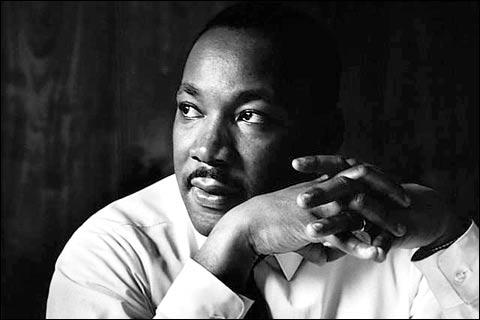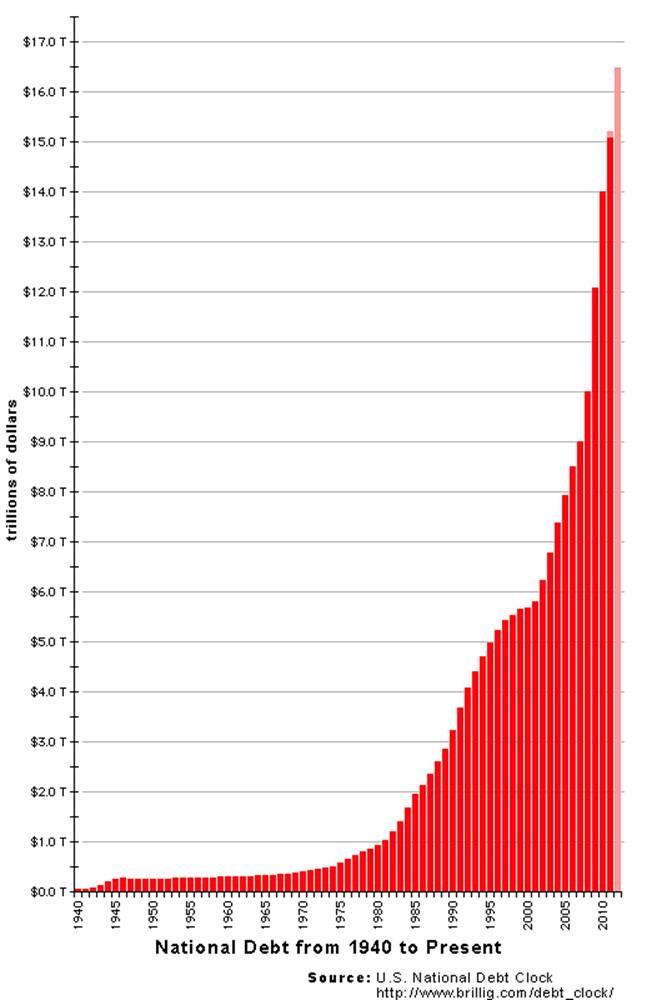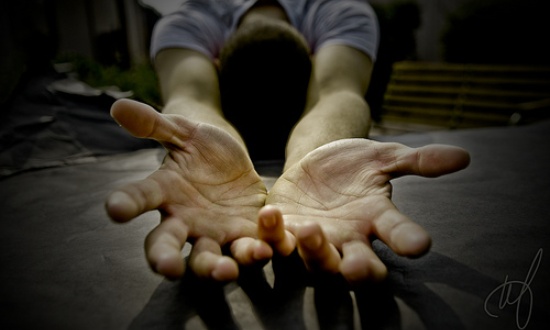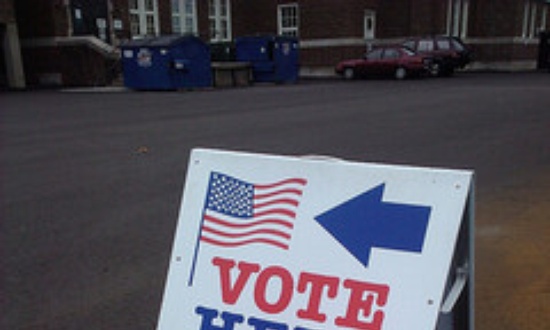I have postponed writing about this election because I feel at a loss as to what to say or how best to say it. Reluctantly, now that the election is only four weeks away, I’ve decided to give it a try. (I may regret it, and you may too.) This will be part one of several, each on different issues. I’m not sure how many blogs there will be, only that they will mercifully stop before the election.
Honestly, I am deeply concerned about this election, but not excited about it. I have very little faith in politics. Republican and Democratic administrations have combined together in the last forty years to establish a staggering track record of economic, personal and moral irresponsibility. They’ve proven themselves poor stewards of our country. And in many ways we have proven ourselves poor citizens and stewards.
Trust me, there will be something in this series of blogs to offend everyone—Republicans and Democrats, conservatives and liberals, supporters of both President Obama and Mitt Romney.
As I’ve said before, I have no desire to try to be either conservative or liberal (see Conservative, Liberal or Christian?). I just want to follow Christ. Doing so sometimes causes me to be conservative (such as conserving the right to life) and sometimes liberal (such as liberating us from racial and gender injustices).
 When I was an eighth grader, my father was a tavern owner, we didn’t attend church and I knew nothing of Christ. Martin Luther King was assassinated in April 1968. The month after King was killed, I went door to door, with friends and a teacher, passing out literature in support of Robert F. Kennedy’s bid for the presidency, particularly because of his emphasis on racial equality. Only two months after King’s death, in June 1968, RFK was murdered. I was devastated, knowing nothing of creation and sin, curse and fall, or the redemptive work of Christ, only that two heroes had been slain. I believed in King’s and Kennedy’s advocacy of racial equality and civil rights, and could not understand people who hated what was right.
When I was an eighth grader, my father was a tavern owner, we didn’t attend church and I knew nothing of Christ. Martin Luther King was assassinated in April 1968. The month after King was killed, I went door to door, with friends and a teacher, passing out literature in support of Robert F. Kennedy’s bid for the presidency, particularly because of his emphasis on racial equality. Only two months after King’s death, in June 1968, RFK was murdered. I was devastated, knowing nothing of creation and sin, curse and fall, or the redemptive work of Christ, only that two heroes had been slain. I believed in King’s and Kennedy’s advocacy of racial equality and civil rights, and could not understand people who hated what was right.
Back then I was unaware of the much longer history of the Republican Party being the party of minorities. The following is drawn from the article “When Did the GOP Get So White? The Republicans’ Loss of Diversity.”
The first popularly elected African-American senator was a Republican, Ed Brooke from Massachusetts, in 1966. Likewise the first Asian-American senator, Hawaii’s Hiram Fong, who was first elected in the Eisenhower era. The first Native-American senator was Charles Curtis—who went on to be Herbert Hoover’s vice president. The first Hispanic senator, Octaviano Larrazolo, also was a Republican. Ditto the first woman popularly elected to the Senate, Maine’s Margaret Chase Smith.
The Republican Party was the party that gave hope and inspiration to minorities—and there was a coalition at first,” says Ed Brooke, now 92 and living with his wife, Anne, in Miami. “My father was a Republican. My mother was a Republican. They wouldn't dare be a Democrat. The Democrats were a party opposed to civil rights. The South was all Democratic conservatives. And the African-American community considered them the enemy.
…Every single one of the 23 African-American members of Congress before 1900 was a Republican. They wouldn’t have dreamed of being anything other than members of the Party of Lincoln—Democrats were the party of the Confederate South. Frederick Douglass summed up the sentiment when he said, “I am a Republican, a black, dyed-in-the-wool Republican, and I never intend to belong to any other party than the party of freedom.” This legacy echoed for generations.
The Republican Party today should continue to expand its racial borders and seek to recover what made it the party of Lincoln. On the other hand, I think the Democratic Party should be careful not to try to “buy” minorities through offers of financial incentives. Both parties should seek to win minorities over, as with people of every color, by sound and responsible philosophies and policies.
As for government helping the poor, Psalm 72 begins with a prayer for kings, which today might apply to our political leaders: "Give the king your justice, O God, and your righteousness to a king's son. May he judge your people with righteousness, and your poor with justice. May the mountains yield prosperity for the people, and the hills, in righteousness. May he defend the cause of the poor of the people, give deliverance to the needy, and crush the oppressor.”
I am in favor of the U.S. government using tax revenues to help some of the poor. However, I am not in favor of government giving tax revenues to all of the poor. To understand why not, here’s an excerpt from my book Money, Possessions and Eternity:
Are We Helping or Subsidizing the Poor?
 The worst thing we can do to the poor is ignore them. The next worst thing is to subsidize them—that is, to help them only enough to keep them alive, but not enough to assist them in developing the means by which they might move out of poverty. The poor are frequently lumped together into one group, as if they’re all the same. They aren’t.
The worst thing we can do to the poor is ignore them. The next worst thing is to subsidize them—that is, to help them only enough to keep them alive, but not enough to assist them in developing the means by which they might move out of poverty. The poor are frequently lumped together into one group, as if they’re all the same. They aren’t.
Neither Scripture nor experience indicate that all poor people are poor for the same reasons. Consequently, they cannot be truly helped by the same means.
A person may be poor for any one or a combination of the following ten reasons: insufficient natural resources; adverse climate; lack of knowledge or skill; lack of needed technology; catastrophes, such as earthquakes or floods; exploitation and oppression; personal laziness; wasteful self-indulgence; religion or worldview; and personal choices by some to identify with and serve the poor.
So when we say, “This is what we should do to help the poor,” it’s like saying, “This is what we should do to cure sickness.” To be effective, cures must be sought and applied for specific diseases, not for “sickness” in general.
If people are poor because their homes and businesses have been wiped out in a flood, the solution may be to give them the money, materials, and assistance to rebuild their homes and reestablish their businesses. And to work alongside them in rebuilding, as many churches did after Hurricane Katrina.
If they’re poor because of insufficient natural resources or adverse climate, we can share the knowledge, skills, and technology necessary to help them make the best of their situation. If this is impossible, we could help them relocate.
If people are poor due to oppression or injustice in our nation, then we can do what we can to remove or mitigate the oppression.
A person may also be poor because of self-indulgence. “He who loves pleasure will become poor” (Proverbs 21:17). Someone may make a decent income but waste it on drugs, alcohol, cigarettes, expensive convenience foods, costly recreation, or gambling (including lotteries). Some people manage to meet their family’s needs on very low incomes. Others make several times as much money, but are always in a financial crisis, because they’re living irresponsibly.
I’ve seen people who perpetually have no money to buy groceries for their family, who are on food stamps, but own nice cars, smart phones, computers and expensive home entertainment centers. The government may consider this poverty, but it certainly is not. Such a person needs only to make wise spending decisions in order to feed his family, then learn to live within his means.
I know personally people whose lives have been utterly ruined because tax-funded social programs taught them they could get by without even trying to work. I know others who have been greatly helped by tax-funded programs to get back on their feet and assume a responsible role in society, to the extent that their health permits.
Finally, a person may be poor due to laziness. God’s Word explicitly says that the result of laziness will be poverty (Proverbs 24:30-34). “Lazy hands make a man poor, but diligent hands bring wealth” (Proverbs 10:4). “A sluggard does not plow in season; so at harvest time he looks but finds nothing’ (Proverbs 20:4). “The fool folds his hands and ruins himself” (Ecclesiastes 4:5). Ultimately, the lazy man is poor by choice.
We shouldn’t rescue lazy people from their poverty. Every act of provision removes their incentive to be responsible for themselves. Paul commands the Thessalonian church to stop taking care of the lazy and reminds them of the rule he issued when present with them: “If a man will not work, he shall not eat” (2 Thessalonians 3:10). In other words, it’s a sin to feed the lazy. The point is not to let people starve; the point is that people who are faced with starvation will be motivated to work and support themselves as God intended. As it says in Proverbs 16:26, “The laborer’s appetite works for him; his hunger drives him on.”
Any system that feeds the lazy is a corrupt system. It does them and the rest of society a grave disservice.
Of course, someone can be unemployed without being lazy! We need to help the unemployed, but all the while we need to help them find work. When employment isn’t to be found, we need to provide it however we can. Franklin Roosevelt had the government pay people to work, not pay them not to work.
If money steadily comes in to the able-bodied person who isn’t working, then money becomes disassociated from work. Such people come to believe that society owes them provision—which further encourages laziness and the destruction of self and family. A nation, social service organization, church, party or individual that subsidizes the lazy spawns laziness. Rather than eliminating poverty, they perpetuate it.
The question is not simply, “What shall we do for the poor?” but “Which poor?” The truly poor should be helped. But they must be helped thoughtfully and carefully, according to the fundamental reasons for their poverty and according to their long-range best interests.
Okay, this is Randy live again, not from the book. :) You must answer, which candidate, Barack Obama or Mitt Romney, strikes you as being able to both care for the poor who truly need help, and able to implement policies that stop giving tax monies to able-bodied people who are lazy and unmotivated.
 Some words on financial responsibility: In my opinion, we are in deep trouble as a nation due to the extent of our national debt. Scripture says, “The borrower is servant to the lender” (Proverbs 22:7). This means among other things that we are in servitude to China and Japan, both of whom we owe over one trillion dollars.
Some words on financial responsibility: In my opinion, we are in deep trouble as a nation due to the extent of our national debt. Scripture says, “The borrower is servant to the lender” (Proverbs 22:7). This means among other things that we are in servitude to China and Japan, both of whom we owe over one trillion dollars.
We are passing this debt on to our children and grandchildren, and we desperately need someone in the White House who will keep his promises to halt the debt spiral. Four years ago President Obama promised he would cut the deficit in half, but it has continued to rise. However, both Republicans and Democrats are guilty. The debt was held in best control under the Clinton Administration, whereas under both George Bush and Barack Obama it has skyrocketed.
Who strikes you as being more financially responsible, Barack Obama or Mitt Romney? Try to figure out the philosophies that each is embracing, and what effect you think their differing philosophies would have on our national debt and the future servitude of our nation and its children.
In summary of these three areas, as you look at the presidential candidates, ask yourself, are both committed to racial equality? Is one less likely than the other to engage in racial baiting, thereby fueling racism? Is one more likely to help the honest poor in the most constructive ways, but not undiscerningly distribute tax monies in the worst and most destructive ways? Will one more wisely steward tax revenues, reward hard work and promote financial responsibility?
As the Knight said in Indiana Jones and The Last Crusade, “Choose wisely.” And as he also said, in this nine second clip:
More Election 2012 Blog Posts
Part 2: Which Candidate Will Best Protect Religious Liberties?
Part 3: Which Candidate Has More Christian Beliefs? (And Should I Vote for a Mormon?)
Part 4: Do the Candidates Have Different Positions on Abortion and Does it Matter?




